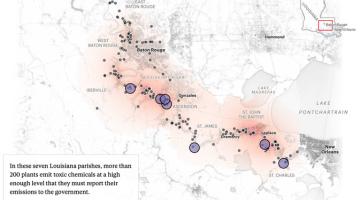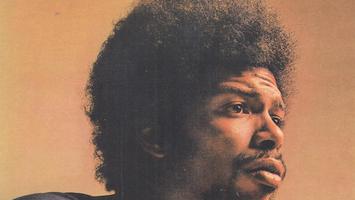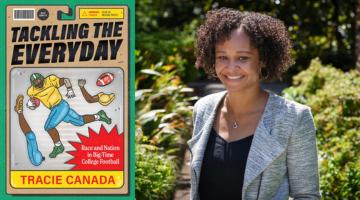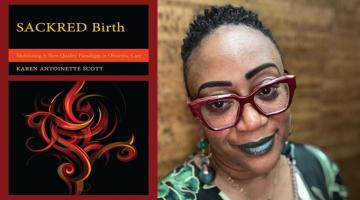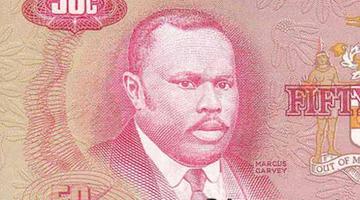This week’s featured author is Charisse Burden-Stelly. Burden-Stelly is Associate Professor of African American Studies at Wayne State University. Her book is Black Scare / Red Scare: Theorizing Capitalist Racism in the United States.
Roberto Sirvent: How can your book help BAR readers understand the current political and social climate?
Charisse Burden-Stelly: Black Scare/Red Scare: Theorizing Capitalist Racism in the United States examines the United States’ mutually constitutive repression of struggles for Black liberation, and the advocacy of and movement for anticapitalist economic organization. I understand these to be inextricable from mobilization against imperialism, (neo-)colonialism, class oppression, and ascriptive hierarchies that reproduce conditions of dispossession for the majority. As such, Black Scare/Red Care, situated between World War I and the early Cold War, gives much needed historical context for current realities such as the state’s classification of organizers against “Cop City” as domestic terrorists and criminals; the FBI attack on the African Peoples Socialist Party as an agent of a foreign power; the employment of “outside agitator” discourse against Black and interracial uprisings that defy liberal non-violent doxa; and the so-called “New McCarthyism” that misidentifies anti-imperialist peace organizers as agents of China or another nefarious foreign power. As I wrote in the Epilogue:
“Persons who espouse, agitate on behalf of, or struggle for racial and economic egalitarianism are still viewed with suspicion or derision, while the steady march of neofascist and white nationalist elements is feared but, in many ways, tolerated and abetted… Because Black self-determination and socialism continue to be seen by the United States as the biggest challenges to peace, prosperity, and security, untold resources are dedicated to shaming these ‘threats’ instead of those that united the right wing from Ukraine to the United States, Brazil to Belarus… Police forces in the United States replicate the violence of [AFRICOM] and [SOUTHCOM] against Black and racialized populations whose poverty marks them as criminal, and whose organized and spontaneous struggles for livable lives render them savage and subversive. Critiques of the United States because of its imperialist practice, war-drive expropriation, and intolerance for ways of living that defy its authority are deemed anti-American and therefore dangerous and destabilizing.” (pp. 243-244)
What do you hope activists and community organizers will take away from reading your book?
One takeaway for activists and organizers is the importance of organizations and comradeship to sustaining movement under government attack. People like Ben Fletcher of the Industrial Workers of the World, Marcus Garvey of the Universal Negro Improvement Association, Angelo Herndon and Claudia Jones of the CPUSA, and W.E.B. Du Bois of the Council on African Affairs and the Peace Information Center were indicted, imprisoned, and harassed by the government, but were able to remain steadfast in their purpose and principles because of the collectives that supported and defended them. Though they were courageous and upright as individuals, it was their immersion in organizations and responsibility to ordinary people—and, in turn, organizations’ and peoples’ commitment to them—that allowed them to weather the onslaught of government violence and counterintelligence. In our current moment there are many critiques of belonging to organizations because of harms and hierarchies that can be reproduced; however, the protagonists in Black Scare/Red Scare realized that organized, disciplined struggle in movement is our best hope to build a better future against extraordinary odds.
A second takeaway from the book is that problems we think are unique to our current moment really have a much longer history that is worthy of study, as are the strategies and tactics that were used to combat them. To be sure, there is change over time and we are confronted with unique challenges in this stage of racial capitalism; nonetheless, we have an array of resources from the past from which to draw in our organizing and agitation today. Perhaps more than this, we have a responsibility to struggle against these durable systems of domination so that future generations can turn to us for wisdom and guidance.
We know readers will learn a lot from your book, but what do you hope readers will un-learn? In other words, is there a particular ideology you’re hoping to dismantle?
One of the primary objectives of this book is to help us unlearn anticommunism by unearthing the quotidian and spectacular ways it infuses U.S. policy and practice. One doesn’t necessarily have to be a socialist or communist, but to be anticommunist militates against the struggle against capitalism, imperialism, and Black liberation. Relatedly, one does not have to be a socialist or communist to be construed as such and to suffer the consequences of anticommunist repression. This is not to say that communist ideas or socialist states are above critique, but rather that the uncritical acceptance of the disciplining and discrediting of communist individuals, ideas, organizations, parties, and societies has been, and continues to be, used to undermine ways of being that reject capitalism, white supremacy, antiblackness, war and militarism, and the hoarding of wealth and resources by the privileged few. We see in Black Scare/Red Scare how anticommunism was used, for example, to disrupt, if not destroy, movements for self-determination in Africa and the Caribbean, agitation for civil rights and Black Power in the United States, and internationalist movements for peace and mutual cooperation.
As I write in Chapter 7, anticommunism “serve[s] to manage and criminalize racial and political ‘others’ whose ideas and beliefs, as much as actions, threate[n] to transform the racialized class order. Anticommunism work[s] through and with white supremacy to encourage cross-class collaboration that obfuscate[s] economic exploitation and discourage[s] interracial class solidarity. It operationalize[s] an expansive dragnet that effectively convert[s] the Black Scare and the Red Scare into bills of attainder and forms of licensing to discipline radical challenge and circumvent the empowerment of the most oppressed and exploited groups. It also call[s] into question who [is] deserving of, and who [can] be denied, rights and liberties based on beliefs, and thus provide[s] a powerful check on freedom of speech, freedom of the press, freedom of assembly, freedom of association, due process, and protection against self-incrimination.” (p. 139)
Which intellectuals and/or intellectual movements most inspire your work?
I am inspired by the scholarship, ideas, organizing, and activism of Black folks in and around the CPUSA, including William and Louise Thompson Patterson, Dorothy and Alphaeus Hunton, W.E.B. and Shirley Graham Du Bois, Paul and Eslanda Goode Robeson, Esther Cooper and James Jackson, Doxey Wilkerson, Grace Campbell, Pettis Perry, Claudia Jones, and Harry Haywood. These freedom fighters variously struggled on behalf of Pan-Africanism, African liberation, socialism, Black self-determination, durable peace, human rights, race and sex equality, an end to triple oppression, and the eradication of imperialism and (neo-)colonialism. Their work included mass campaigns to free political prisoners, charge the United States with genocide, desegregate industry, combat “legal lynchings,” organize workers across racial lines, lift up the U.S. South as a key site of struggle, raise awareness about apartheid in South Africa and colonialism throughout the continent, link fascistic practices in the United States to fascism in Europe, and sound the alarm about the red scare, McCarthyism, and anticommunism.
Additionally, I am inspired by organizations that, despite unrelenting attack from the US government, made important contributions to the struggle for racial and economic democracy. These include the Council on African Affairs, the Civil Rights Congress, the Sojourners for Truth and Justice, the Industrial Workers of the World, the National Negro Congress, the National Negro Labor Council, and the National Committee to Defend Negro Leadership.
Which two books published in the last five years would you recommend to BAR readers? How do you envision engaging these titles in your future work?
Admittedly this is a shameless plug, but I recommend Organize, Fight, Win: Black Communist Women’s Political Writing edited by myself and Jodi Dean and published by Verso in 2022. In many ways it is a companion to Black Scare/Red Scare, as it includes primary writings about many of its themes, from imperialism to fascism to international solidarity. Organize, Fight, Win includes writings—e.g., newspaper articles, party reports, transcribed speeches, and even fictional columns—by Black Communist and Communist-adjacent women like Lorraine Hansberry, Claudia Jones, Dorothy Burnham, Alice Childress, and Eslanda Goode Robeson. This is a text I incorporate in the classroom and draw on often in my articles, essays, books, and blogs. It is also a great text for political education and study groups.
A second book I recommend is Worldmaking After Empire: The Rise and Fall of Self-Determination, published by Princeton University Press in 2019. In it, Adom Getachew explicates anticolonial nationalism as a project of worldmaking meant to dismantle systems of imperialism and racial hierarchy and to undo the unequal integration of the global south into the capitalist world-system. She argues that anticolonial critics like W.E.B. Du Bois, Nnamdi Azikiwe, George Padmore, and Michael Manley sought to radically refashion the international order through the substantive redistribution of legislative and economic power to ensure nondomination. Particularly important, the book theorizes imperialism as a racialized global structure meant to preserve the unequal and inegalitarian international order, and anticolonial nationalism as an anti-imperial project that harnessed national independence to the transformation of international society to the benefit of the majority. I find this work’s emphasis on the ongoing realities of imperialism and the importance of anti-imperialism to any project of liberation especially useful. Like Organize, Fight, Win, I will continue to teach it in my courses. I will also draw on for my work-in-progress that compares radical Black theories of anti-imperialism between the 1950s-1970s.
Roberto Sirvent is editor of the Black Agenda Report Book Forum.

